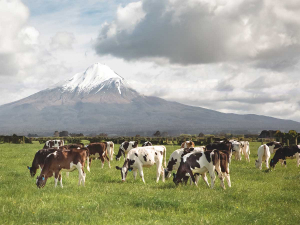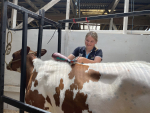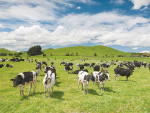If you are a dairy farmer, the prosperity of your future lies in your heifers - the future of your herd.
World Wide Sires says calving is arguably the biggest time of the year but do you ever step back and look at your calves and freshly calved heifers and ask yourself if they have the attributes your farming business will need to prosper in the future?
Most farmers agree the breeding goal is to, year on year, improve the quality of the herd in terms of fertility, health and production. Are you achieving that or has another year just gone by?
“All too often we’re caught doing what we’ve always done, getting what we’ve always got and just accepting things as they are because there are so many other priorities.
The difficulty with genetics and herd improvement is it’s not a quick fix, and the results of today’s decisions or indecisions take years to show any effect on your business,” says Craig Robertson, sales and marketing manager for World Wide Sires NZ.
“Each year’s calving should be a time of anticipation and excitement to see ‘the next generation’ land on the farm. Similarly, it should be a time of pride and satisfaction to see your heifers come into the dairy with faultless temperament, adaptability to milking, and improvement in udder and functional confirmation traits over their dams,” says Robertson.
“Heifers calving this spring are the result of a mating decision made three years ago. It’s sobering to think that the calves filling your pens this spring won’t have an economic return on your business for another five years – so do they represent the genes which will take you into the future?
“Today’s farmers face different challenges to their forebears.
“On all sides the efficiency and sustainability of your business is facing pressure, and we are all faced with the fact that future herds need to be smaller but capable of producing more than today’s.
“It’s a challenging prospect but one better faced now than in five years’ time.”
Robertson says the dairy industry of the future needs cows that last, with udders capable of multiple lactations and greater per cow production than the average New Zealand cow is achieving today.
“The decisions you make this breeding season will pay forward in five or ten years time so it’s worth spending some time, this calving, on the quality of your herd and asking yourself if it has what you, your family and the industry need in the future.”


















